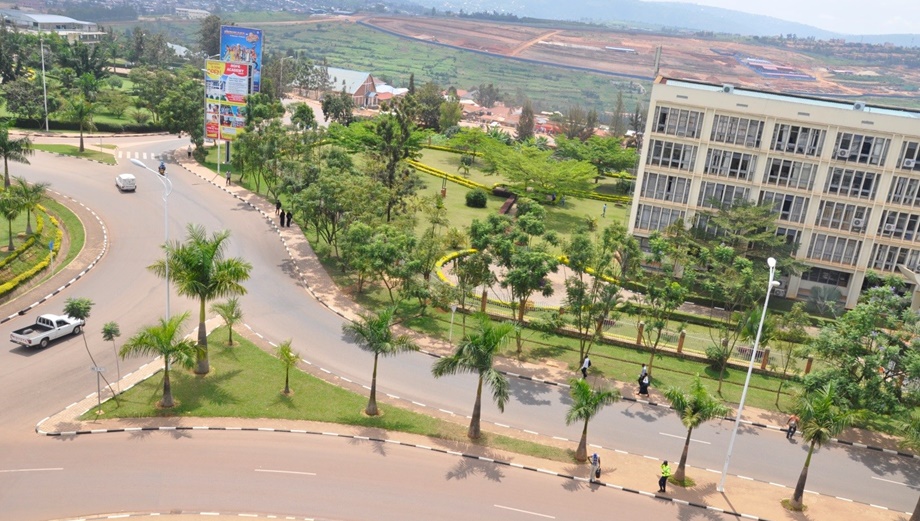Kigali, 6th March, 2017-Rwanda is dedicated to manage the country’s present and future urban and human settlement development as a means to boost its economy through coordinated growth to ensure an improved quality of life for every citizen.
Rwanda is one of the fastest-growing economies in Africa, with agriculture accounting for a third of its economy. Urbanization, if not looking at only consumption, but commercial and industrial productivity, domestic growth through massive job creation and protection of natural and agricultural resources, offers opportunities for a sustained and intensified growth and subsequently an improved livelihood to the growing population.
According to the Permanent Secretary in the Ministry of Infrastructure, Mr. Christian Rwakunda the national urbanization policy comes as a solution to address some of the fundamental problems associated with all aspects of cross-sectoral actions in urban development and governance. These include a weak urban economy, inefficient land-use, disorder and uncontrolled urban sprawl, increasing environmental deterioration, inadequate urban services, urban poverty, informal settlements, weak urban governance and institutional coordination, lack of integrated cross-sectoral planning weak rural-urban linkages, limited data and information on urban areas, inadequate urban investment and financing, weak communication strategy, weak urban transportation planning and traffic management and a host of other challenges associated with local capacities.
In order to take proactive steps, for the first time in its history, Rwanda has formulated a comprehensive policy document on National urbanization to promote a sustainable, spatially integrated and orderly development of urban settlements with adequate housing and services, efficient institutions, sound living and working environment for all people to support rapid socio-economic development of Rwanda This policy document emerged from comprehensive consultations and reviews with stakeholders at various levels and with the help of a situation analysis. The process involved dialogue at National, Provincial and District levels, and included representatives of civil society organizations and the private sector, as well as consultation with development partners.
The most spectacular change in Rwanda over the last few decades has been the dramatic demographic shift from rural areas to the cities. As cities and towns in Rwanda have confronted this demographic explosion, urban management has become all the more challenging amid the current trend toward decentralization. With little experience in urban management, local governments have often been unable to develop strategies and plans to mobilise the resources they need to deal with urban growth.
To address the above-mentioned challenges, the policy is organized into four policy pillars including coordination, densification, conviviality, and economic growth. Though the policy measures enshrined in this document do not provide an all-round panacea or solution for all our urbanization challenges, they provide the framework and direction for dealing with issues of cross-sectoral coordination, urban land use efficiency, urban governance, social inclusion, safety and security in the urban areas, and promotion of urban economic development with emphasis on local economic development and informal sector.
Given the cross-cutting nature of urbanisation, implementation of each of the above-mentioned policy pillars will be facilitated and under the responsibility of a leading and a co-leading sector Ministry. The Ministry in charge of urbanization shall supervise, coordinate and oversee the administrative planning and implementation of the policy measures and subsequent actions with the support of the agency in charge of urban planning and development.
Urbanization: an opportunity for investment and economic growth
Cities and towns are engines of growth and incubators of civilisation which facilitate the evolution and transmission of knowledge, innovation, culture, industry and commerce. No country in the world has ever attained a substantially recognizable economic growth without urbanizing. Urban settlements, if properly planned and managed, promote economic growth, human development and the protection of the natural and built environment.
This National Urbanization Policy for Rwanda sets local challenges into a global context in support of a number of international policies and treaties and defines the strategies for national human settlement development in the context of economic growth. The Sustainable Development Goals, the African Urban Agenda and the EAC urban development and housing action plan are part of the regionally and internationally relevant policies. With the world envisaging the human settlement trend tending towards urban, the future inevitably remains to be urban. Rwanda already recognised this and took a proactive step to facilitate urbanisation having foreseen the socio-economic development opportunities enshrined in it.Rwanda’s overarching national goal in Vision 2020 puts emphasis on urbanisation as a key driver for economic growth with a target of 35% urban population in 2020. This target is embedded in the country’s development agenda as Rwanda seeks to exit from low-income country status to a middle-income country. This will require generation of 1.8 million new off-farm jobs by 2020 to reach middle-income status and such jobs can only be created in urban areas.
Rwanda’s Economic Development and Poverty Reduction Strategy 2013-2018 (EDPRS II) also proceeds to specify the importance of developing secondary cities located in Rubavu, Musanze, Rusizi, Huye, Muhanga and Nyagatare Districts as a means to unlock transformative economic opportunities. These cities were chosen based on strategic location, growth trends, unique assets, and potential to become regional economic hubs. To realize their potential, these cities will require significant investments in infrastructure with direct linkages to their emerging visions and strategies to attract investment and catalyze economic and urban growth
Joint working relations and collaborations between stakeholders through integrated resource planning efforts shall ensure the concerted implementation of policy measures under a shared responsibility.
The exercise of disseminating the National Urbanisation Policy (NUP) will commence on the 13th - to 24th, March 2017 Country wide and on the last day, event on the national level will be held at Camp Kigali combining all sectors from Nyarugenge,Gasabo and Kicukiro districts.

 ENGL
ENGL KINY
KINY